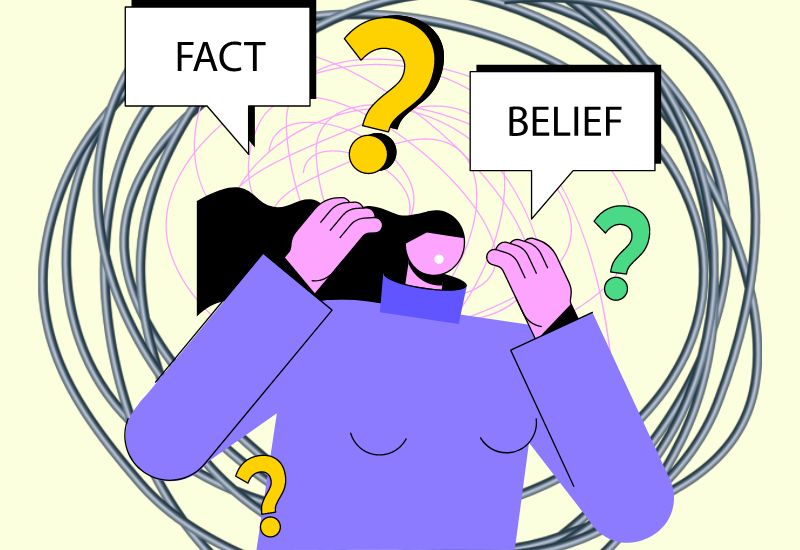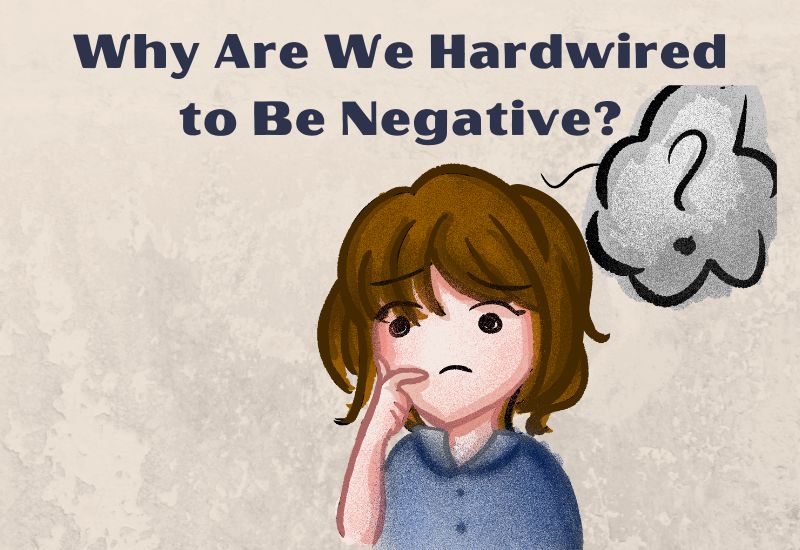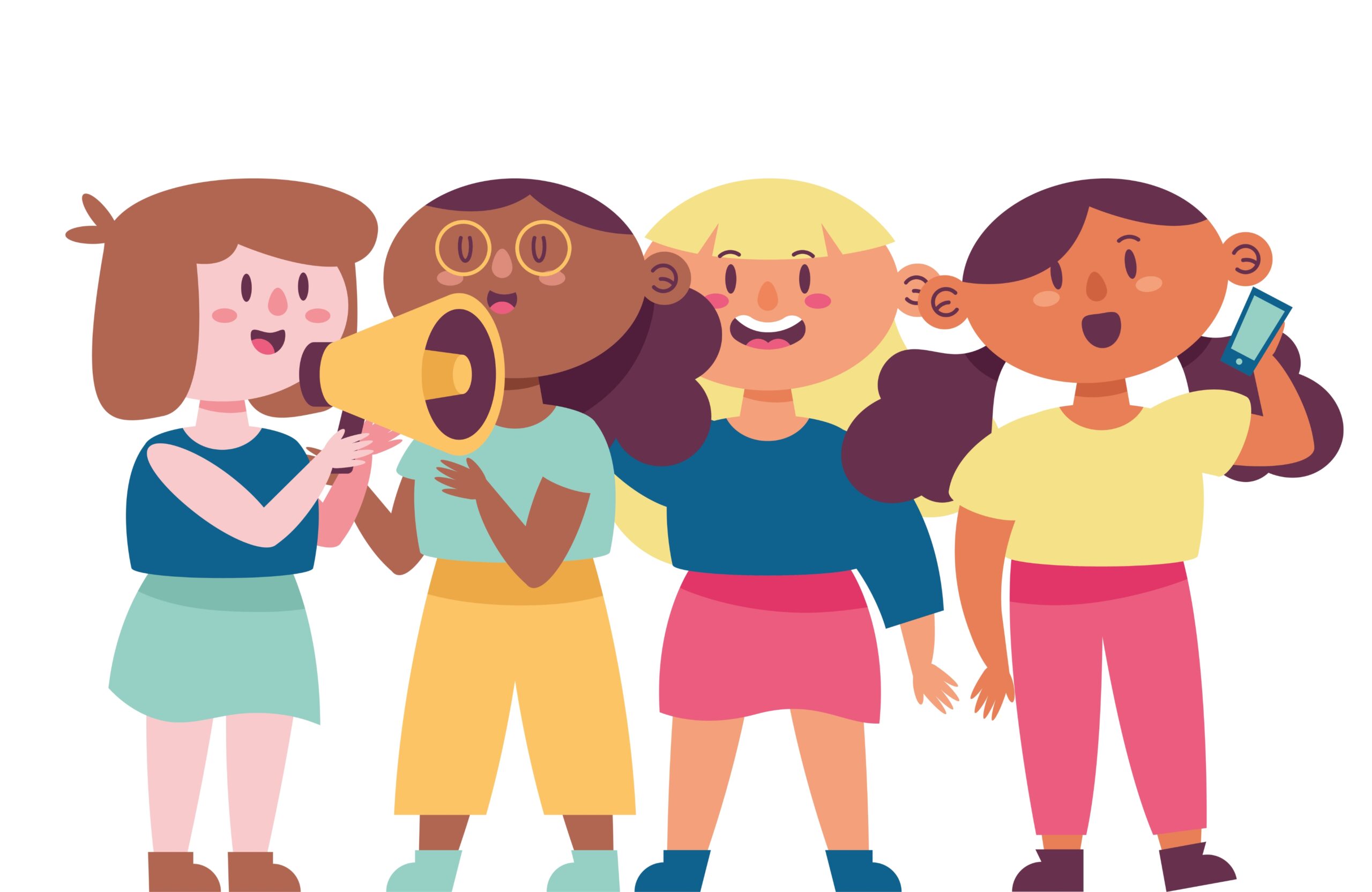Do you ever think whatever bad happens in and around people’s lives is because of you? Or do you think the whole fault is with others, and you are a victim? Do you think that what you do never pays off entirely? The world should be just and dealt with in a just manner. All these thoughts are distorted; they are called cognitive distortions.
So. Let’s discuss the most common 15 cognitive distortions and the ways to challenge and defeat them to get a more positive attitude toward life.

Before discussing the 15 common cognitive distortions, it’s better to understand what a cognitive disorder is and what factors are behind its emergence and development. So, continue to read.
What Are Cognitive Distortions?
A fact less thought that comes to your mind and interrupts your positive thinking and exaggerates towards more negative is a cognitive distortion or distorted thought. You think and feel more negatively, and ultimately, your perception of other things, people, and your surroundings becomes more negative.
These consistent thoughts put your soul in a belief that what you are thinking is correct and backed by facts. This convincing is so powerful and effective at a particular stage that you make faulty assumptions about everything and stick to them as if they are facts. And consequently, depression and stress overwhelm you and affect your mental health.
What Causes Cognitive Distortions?
The reasons behind systematic errors that occur in a person’s logic and make him think and behave negatively are depression, anxiety, and mental illnesses.
As we discussed earlier, cognitive distortions affect a person’s behavior, thinking process and thoughts, and emotional well-being. It is evident that the reasons are not only depression and anxiety, but there are many underlying factors that play a crucial role in nurturing negative thought patterns. Let’s discuss them.
Cultural Impact On Our Thinking
Culture is something you learn and pass from generation to generation; that’s why it greatly impacts our personalities and minds. Some things that affect us, either positively or negatively, are mentioned below.
- The language we speak,
- Religion we follow
- Customs and beliefs we practice and believe
- moral values we value
- Dress we wear
- Words and tone we communicate
- The behavior of handling emotions
Culture also impacts your mindset of either promoting competition or believing in collaboration mindset.
It also lowers your willingness to decide whether to speak about mental illness. Seeking help is also a part of it.
Environmental Impact On Our Thinking
Environmental factors influence a person’s attitude, persistence in beliefs and thoughts, ability to learn to build resilience, and sense of security. Positive environmental factors help get health care and bring positivity to life, thus decreasing stress and increasing life span.
Social Impact On Our Thinking
Social factors significantly impact a person’s life, especially stigma from peers, societal stereotypes, and multimedia platforms; these contribute to shaping our thinking, ideas, beliefs, and perceptions of other people, things, and happenings.
Parental attitude, behavior, and guidance also play a crucial role in shaping our behavior, beliefs, and attitude.
Positive relationships promote positivity on both ends and create a positive environment, encouraging healthy communication and boosting emotional well-being. On the other hand, the mentality of “Us vs Them” results from negative social relationships and behaviors.
Mental health also becomes better by participating in social activities, and it also eliminates cognitive distortions.
How to Recognize You Are Affected by Cognitive Distortions?
There is no particular answer to it because no one in the world claims that he has not been affected by cognitive distortion in his life. As this problem is present in everyone and everyone has experienced it in his life, only you can recognize it by keeping some points in mind, like
- Negative thoughts and beliefs become habitual
- Baseless and factless thoughts often come to mind
- Formation of inaccurate beliefs
- Negative thoughts make you feel bad and compel you to hate yourself and a particular person.
- Negative beliefs and thoughts bring negative emotions
- Urge you to behave negatively and do wrong things
- Cause anxiety and depression and makes you live lonely instead of with other people
- The risk of psychological damage also increases at a high rate

List Of Cognitive Distortions – The Top 15 Cognitive Distortions
We have discussed the term in detail; now it’s time to discuss its types. So read my chosen cognitive distortions list to understand more.
1. Polarized Thinking
As the name suggests, this thinking is like either a positive or a negative pole; there is no middle thing between them, like the complexities of life. People, conditions, situations, and results are black or white and all or nothing. For example, thinking a business person is either successful or fails, and your thinking is either right or wrong, every time at extreme levels.
2. Mental Filtering
A person filtering out the positive points and focusing only on the negative ones is mental filtering.
Negative Filtering: Make the entire focus on negative aspects and filter out the positive ones. The vision becomes darkened and distorted because a person only wants to see one negative aspect and ignore a hundred positive ones.
Disqualifying Positive: You see positive points, acknowledge them, but don’t want to accept them. On the other hand, you desire to reject the positive aspects altogether or try to change them into negative ones.
3. Overgeneralization
In overgeneralization cognitive distortion, you see one negative point and then make a conclusion based on that point. Every next time when the same happening will occur, you will also conclude it negatively based on the previous judgment. For example, a one-time failure of a student in an exam makes him conclude that he will always fail in future exams.
4. Jump to Conclusions
You suddenly jump to conclusions based on assumptions and ignore likely possibilities, facts, and physical evidence.
Mind Reading: You start thinking you are reading someone’s mind, make assumptions about his feelings and intentions, make conclusions based upon them with little or no evidence, and give no attention to possibilities.
Fortune Telling: Like mind reading, in fortune telling cognitive distortion, you think you can see the future, understand the person’s mindset, make assumptions and jump to conclusions without evidence. It only leads you to negative judgments.
5. Catastrophizing
Catastrophizing is different; in one situation, you exaggerate and maximize the importance of insignificant things and overthink them. On the other hand, considering less important and minimizing the importance of significant things is the other situation that makes you aim less and results in major failures in life.
6. Personalization
Your thoughts are distorted when you start believing that whatever someone says and do is against you. Taking everything as a personal attack causes severe depression and stress and ultimately makes you mentally ill.
In such a situation, it’s possible that you’ll start to blame yourself for things that are beyond of your control, and you could also start to believe that others are excluding or avoiding you on purpose.
7. Blaming Others
It is similar to personalization, but the target in such a situation is others. Instead of blaming ourselves, we play the victim card. In such a scenario, we start complaining about others and believe that they are the culprits.
8. Labeling
Mislabeling is the most drastic, and you can call it the next stage of overgeneralization because, based on your false beliefs, thinking, or something that occurred before, you not only make assumptions about yourself or others and predict future outcomes but also attach the cognitive labels. And this will entirely ruin your and others’ life.
9. I’m Right (Always)
It is drastic when you start believing yourself to be the rightest person and never letting yourself accept that you and your thinking might be wrong. People consider their opinions facts, do whatever to prove that they are right and others are wrong, and ask others to justify and prove their actions and opinions.
10. Should Statements
In shoulds cognitive distortions, the “rules of should and shouldn’t” are not always good, mainly when we impose them on ourselves or others. These regulations generate a great deal of pressure by establishing a set of expectations that are unlikely to be satisfied in any given situation. The emotion of disappointment may lead to feelings of remorse, frustration, and even hatred or resentment in certain people.
11. Emotional Reasoning
When emotional reasoning overcomes logical reasoning, the mind accepts the emotional feeling resulting from distorted thinking as a fact. People consider that feeling right and say it is the only truth.
12. Control Fallacies
The distorted thoughts result from the feeling that either you can control everything or you can’t.
External Control Fallacy: external factors control everything; you can’t do anything because fate has been decided.
Internal Control Fallacy: You can control everything about yourself and your surroundings, so you can’t skip any responsibility, as your internal factors are responsible for everything. If you fail or others become unhappy, no one is responsible other than you.
13. Fallacy of Change
The unprecedented belief in the policy of change is the distorted thinking that makes people believe that change brings happiness. So, they start compelling people to change themselves if they want to be happy.
14. Fallacy of Fairness
Those who commit the Fallacy of Fairness falsely believe that justice and equality should underpin every aspect of human existence.
But the truth is that not everything turns out the way we anticipate it would, and when that happens, we inevitably feel frustrated and bitter toward some aspects of life.
15. Heaven’s Reward Fallacy
When the Fallacy of Fairness makes us believe that everything should be fair, we start thinking about getting rewarded based on that assumption. The logic behind this distortion is that one ought to be paid in proportion to the amount of effort that one puts out. But in addition to that, we should prepare ourselves for disappointment since the majority of things in the actual world are not fair. And this causes one to feel frustrated, angry, and resentful of the situation.
How To Challenge Cognitive Distortions – Ways To Defeat
Though we have discussed 15 cognitive distortions, now it’s time to understand how to challenge and defeat them. That’s why we are sharing 12 tips for helping you to overcome your negative thoughts.
1. Being cathartic toward yourself and writing your cognitive distortions in your journal
2. Now it’s time to recognize your cognitive thoughts and challenge them while asking 4 questions related to one distortion.
- Where this thought comes from?
- Why it comes, and why do you believe it?
- What are its pros and cons?
- How to find its alternative, a positive thought that brings more advantages and lessens the prior disadvantages?
3. Try to change your facts and opinions.
4. Decatastroph your negative thoughts by using a cognitive restructuring technique
5. Do a survey to ask trusted friends and family members.
6. Give yourself and others a margin of mistake; come out of the strictness of should and shouldn’t laws.
7. Stop labeling yourselves and others and start relabeling
9. Share the blame with external factors which may be responsible for a particular situation. Don’t try t put all blame on yourself.
10. Start a cost-benefit analysis of the firm time
11. Remove the double standard methods, behave with yourself, and treat yourself as you consider others.
12. Don’t be too extremist; see life and circumstances in shades of grey to understand and defeat more.
Conclusion
We have discussed 15 cognitive distortions, and we believe that you can now easily understand your distorted thoughts and why you have so many negative thoughts in your mind. The best way is to identify, challenge, and defeat them. And we are pretty much sure that you can do it.
















